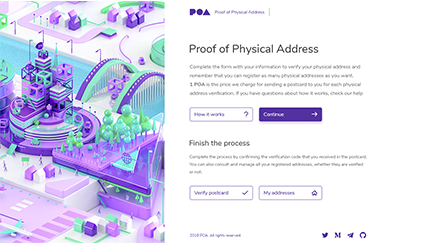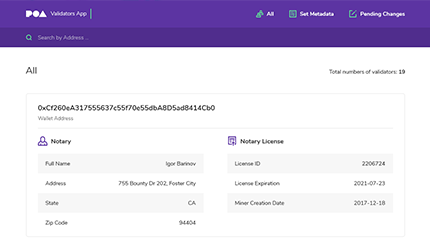 |
 |
 |
 |
 |
|
|---|---|---|---|---|---|
| Block Time | 5s | 15s | 0.5s | 15-20s | 4s |
| Validator/Block Producer Requirements | Trusted US Public Notary, willing to stake identity and reputation, meet specifications for server performance and emphasis on geographic diversity | Not possible on Ethereum | Ability to successfully produce a block. Includes crypto exchanges and mining pools | Must be within the NEO ecosystem. Every validator must know every other validator | Ripple validators meet specifications for server performance, networking capability, and geographic diversity |
| Validator Selection | Elected by a majority vote of current validators in a decentralized manner through on-chain governance | N/A | Token holders select validators. More tokens possession allows for more voting power | NEO’s team currently operates all validator nodes in the network | Ripple company adds trusted validators nodes based on diversification of identity, location, hardware and software |
| Number of Validators/Mining Pools | 23 | 5 | 21 | 7 | 70+ |
| Number of Entities in Control of >50% of Voting/Mining Power | 11 (Constantly Increasing) | 3 | 11 | 1 | 1 |
 John LeGassic
John LeGassic 
Validators
POA Network validators are a diverse and self-governed group of individuals. They each have been entrusted in a decentralized manner to promote network health, performance and security. Validators must monitor their own nodes and the ecosystem at large to maintain optimal performance. In addition, validators must also participate in on-chain governance by creating and voting on ballots that may update the state of the blockchain. Some examples include adding/removing validators, updating block size and soft/hard forks.
Learn more about POA validators Jim O’Regan
Jim O’Regan 
Validators
POA Network validators are a diverse and self-governed group of individuals. They each have been entrusted in a decentralized manner to promote network health, performance and security. Validators must monitor their own nodes and the ecosystem at large to maintain optimal performance. In addition, validators must also participate in on-chain governance by creating and voting on ballots that may update the state of the blockchain. Some examples include adding/removing validators, updating block size and soft/hard forks.
Learn more about POA validators Rocco Mancini
Rocco Mancini 
Validators
POA Network validators are a diverse and self-governed group of individuals. They each have been entrusted in a decentralized manner to promote network health, performance and security. Validators must monitor their own nodes and the ecosystem at large to maintain optimal performance. In addition, validators must also participate in on-chain governance by creating and voting on ballots that may update the state of the blockchain. Some examples include adding/removing validators, updating block size and soft/hard forks.
Learn more about POA validators Jefferson Flowers
Jefferson Flowers 
Validators
POA Network validators are a diverse and self-governed group of individuals. They each have been entrusted in a decentralized manner to promote network health, performance and security. Validators must monitor their own nodes and the ecosystem at large to maintain optimal performance. In addition, validators must also participate in on-chain governance by creating and voting on ballots that may update the state of the blockchain. Some examples include adding/removing validators, updating block size and soft/hard forks.
Learn more about POA validators Melanie Marsollier
Melanie Marsollier 
Validators
POA Network validators are a diverse and self-governed group of individuals. They each have been entrusted in a decentralized manner to promote network health, performance and security. Validators must monitor their own nodes and the ecosystem at large to maintain optimal performance. In addition, validators must also participate in on-chain governance by creating and voting on ballots that may update the state of the blockchain. Some examples include adding/removing validators, updating block size and soft/hard forks.
Learn more about POA validators Stephen Arsenault
Stephen Arsenault 
Validators
POA Network validators are a diverse and self-governed group of individuals. They each have been entrusted in a decentralized manner to promote network health, performance and security. Validators must monitor their own nodes and the ecosystem at large to maintain optimal performance. In addition, validators must also participate in on-chain governance by creating and voting on ballots that may update the state of the blockchain. Some examples include adding/removing validators, updating block size and soft/hard forks.
Learn more about POA validators Marat Pekker
Marat Pekker 
Validators
POA Network validators are a diverse and self-governed group of individuals. They each have been entrusted in a decentralized manner to promote network health, performance and security. Validators must monitor their own nodes and the ecosystem at large to maintain optimal performance. In addition, validators must also participate in on-chain governance by creating and voting on ballots that may update the state of the blockchain. Some examples include adding/removing validators, updating block size and soft/hard forks.
Learn more about POA validators John D.Storey
John D.Storey 
Validators
POA Network validators are a diverse and self-governed group of individuals. They each have been entrusted in a decentralized manner to promote network health, performance and security. Validators must monitor their own nodes and the ecosystem at large to maintain optimal performance. In addition, validators must also participate in on-chain governance by creating and voting on ballots that may update the state of the blockchain. Some examples include adding/removing validators, updating block size and soft/hard forks.
Learn more about POA validators S. Vishneuski
S. Vishneuski 
Validators
POA Network validators are a diverse and self-governed group of individuals. They each have been entrusted in a decentralized manner to promote network health, performance and security. Validators must monitor their own nodes and the ecosystem at large to maintain optimal performance. In addition, validators must also participate in on-chain governance by creating and voting on ballots that may update the state of the blockchain. Some examples include adding/removing validators, updating block size and soft/hard forks.
Learn more about POA validators Lillian Chan
Lillian Chan 
Validators
POA Network validators are a diverse and self-governed group of individuals. They each have been entrusted in a decentralized manner to promote network health, performance and security. Validators must monitor their own nodes and the ecosystem at large to maintain optimal performance. In addition, validators must also participate in on-chain governance by creating and voting on ballots that may update the state of the blockchain. Some examples include adding/removing validators, updating block size and soft/hard forks.
Learn more about POA validators Alexey Emelyanov
Alexey Emelyanov 
Validators
POA Network validators are a diverse and self-governed group of individuals. They each have been entrusted in a decentralized manner to promote network health, performance and security. Validators must monitor their own nodes and the ecosystem at large to maintain optimal performance. In addition, validators must also participate in on-chain governance by creating and voting on ballots that may update the state of the blockchain. Some examples include adding/removing validators, updating block size and soft/hard forks.
Learn more about POA validators Adam Kagy
Adam Kagy 
Validators
POA Network validators are a diverse and self-governed group of individuals. They each have been entrusted in a decentralized manner to promote network health, performance and security. Validators must monitor their own nodes and the ecosystem at large to maintain optimal performance. In addition, validators must also participate in on-chain governance by creating and voting on ballots that may update the state of the blockchain. Some examples include adding/removing validators, updating block size and soft/hard forks.
Learn more about POA validators Ilmira Nugumanova
Ilmira Nugumanova 
Validators
POA Network validators are a diverse and self-governed group of individuals. They each have been entrusted in a decentralized manner to promote network health, performance and security. Validators must monitor their own nodes and the ecosystem at large to maintain optimal performance. In addition, validators must also participate in on-chain governance by creating and voting on ballots that may update the state of the blockchain. Some examples include adding/removing validators, updating block size and soft/hard forks.
Learn more about POA validators Xiaobo Chen
Xiaobo Chen 
Validators
POA Network validators are a diverse and self-governed group of individuals. They each have been entrusted in a decentralized manner to promote network health, performance and security. Validators must monitor their own nodes and the ecosystem at large to maintain optimal performance. In addition, validators must also participate in on-chain governance by creating and voting on ballots that may update the state of the blockchain. Some examples include adding/removing validators, updating block size and soft/hard forks.
Learn more about POA validators



